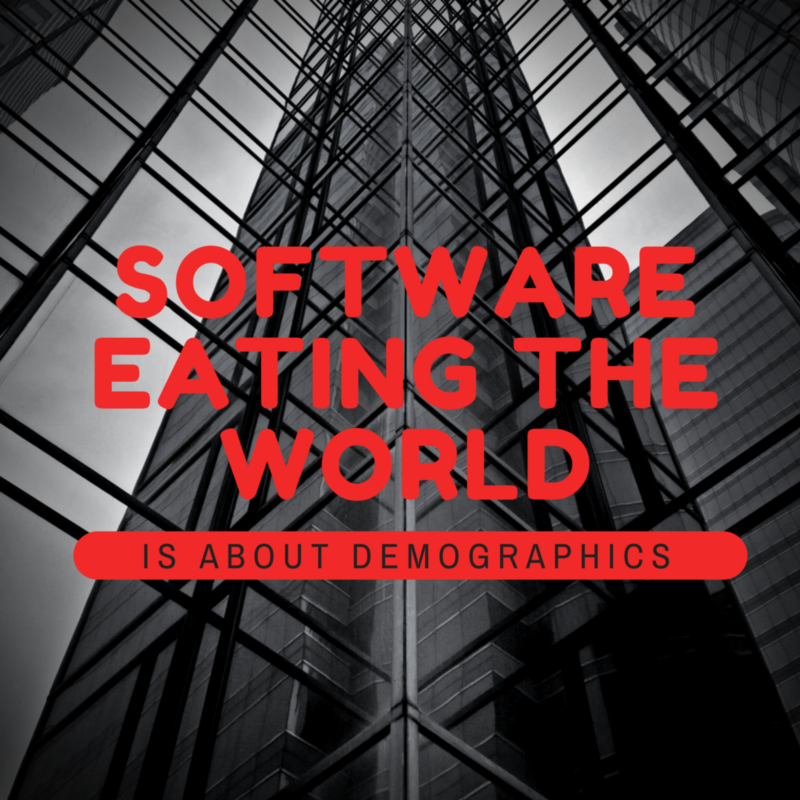Five years ago Marc Andreessen wrote a famous essay titled, “Why Software is Eating the World.” In it he states that “More and more major businesses and industries are being run on software and delivered as online services—from movies to agriculture to national defense.” The reasoning behind that are that the cost of running servers is only getting cheaper and he gives plenty of examples of new companies disrupting the old guard.
What he doesn’t address in his essay is what I believe to be the largest driving force to his conclusion. Software eating the world is as much about demographics as it is about software innovation. Younger people more readily embrace software solutions and services.
Young people are technologically literate and already open up bank accounts, brokerage accounts, insurance, and purchase automobiles online without any face-to-face or phone interactions. They are comfortable with using computers to manage their money and, to a certain degree, computers managing their money (any financial firm that uses algorithms for asset allocation or order placement). They will likely retain that comfort throughout their life or, at least, until their wealth gets to be large enough that it would take more time and knowledge than they have to manage (e.g. setting up trusts).
The second reason that I believe demographics are causing software to disrupt many industries is that younger people tend to be more price sensitive due to their lower income levels. They are willing to trade individualized service for service powered by algorithms if it means saving money.
The final, and most speculative, of my reasons is that I feel that many young people place a higher value on their time than their parents did at that age. Whether they use that time productively or for entertainment they definitely do not appreciate wasting it.
What that means is that software will end up replacing service industries (though it could take a long, long time before it is true that anything a human can do a computer can do better). It is happening in the banking industry (Simple), wealth management (the many robo advisors), legal industry (LegalZoom), accounting and tax industry (TurboTax), human resources (Zenefits and Gusto), and the health industry (Fitbit is as much about the software as the band on your wrist).
Right now many people still trust humans more than computers. They want to get “a set of eyes on it” before sending off a report. That is totally understandable. I still hear people blame their computers/Outlook/Excel with their bosses nodding understandably. Younger people will more likely blame the user.
The people that still write checks at the grocery store might never embrace the software revolution. Supporting them will become a niche of every industry with high costs. Everybody else will eventually view services that requires a face-to-face or phone interaction as nuisances with the time being better spent elsewhere.

